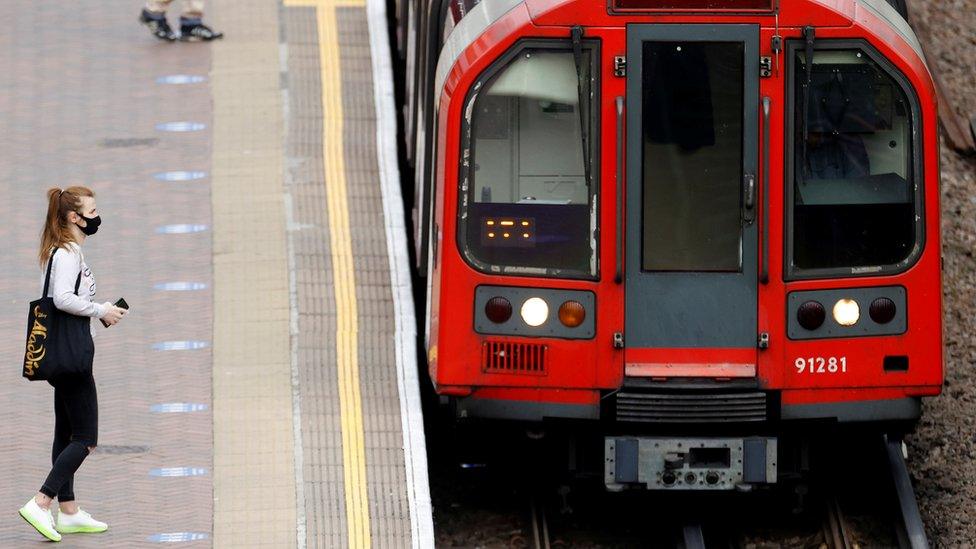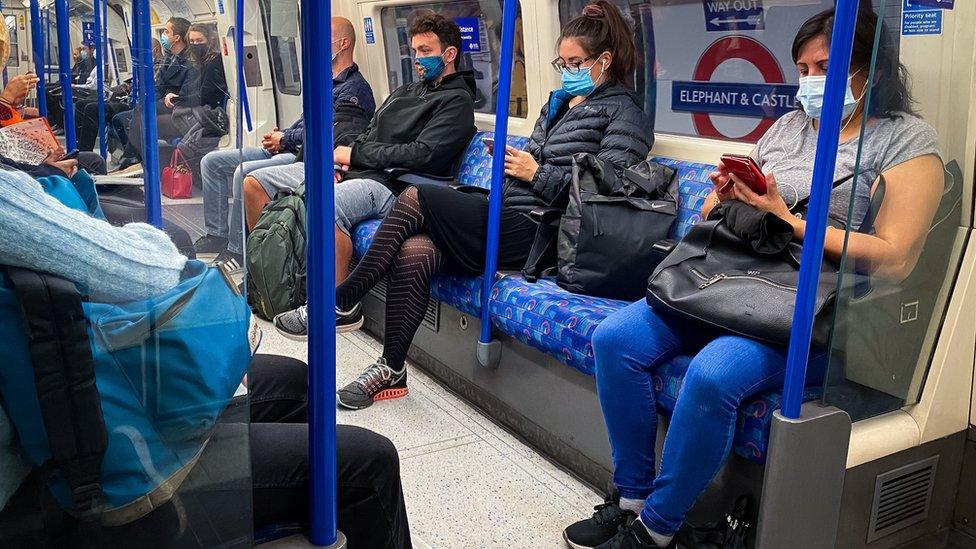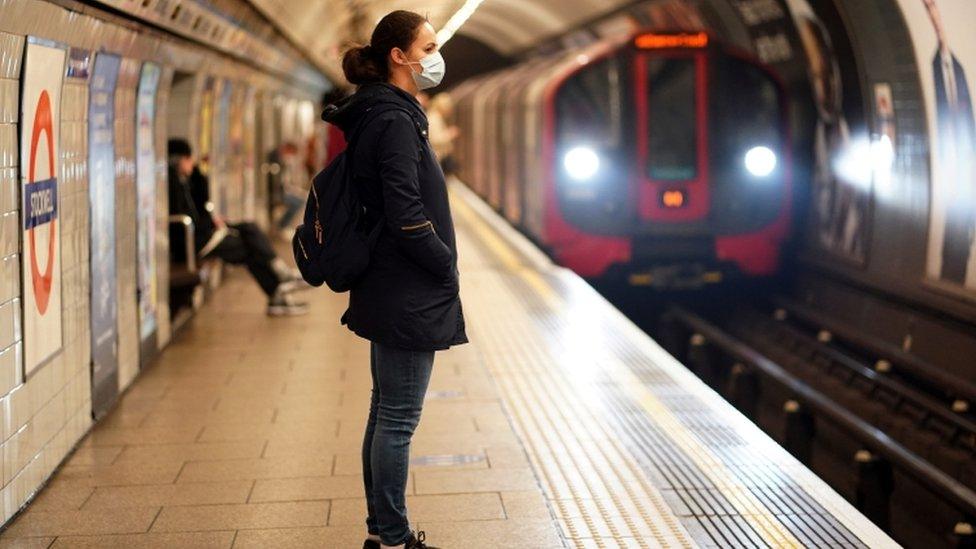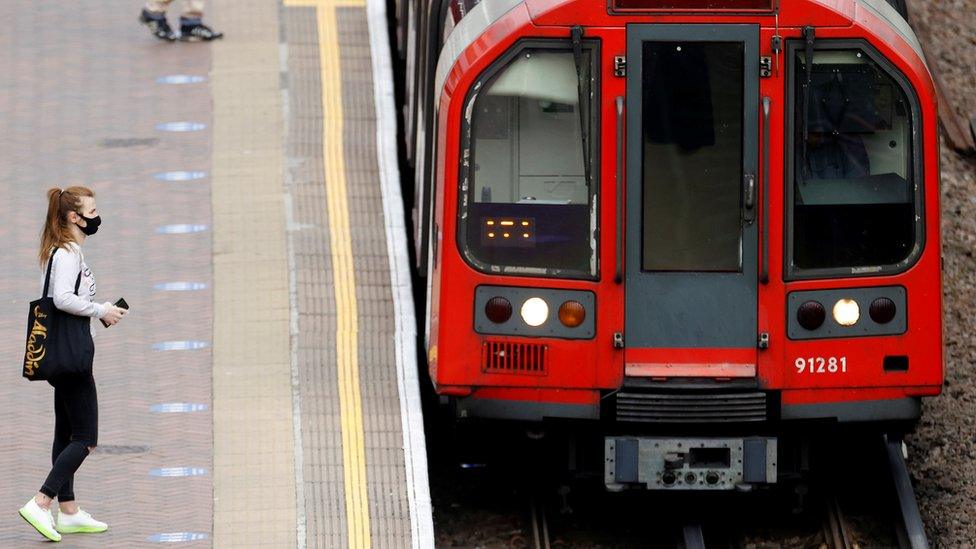Driverless trains 'poor value' says leaked TfL study
- Published
- comments

Boris Johnson is calling for driverless trains to be a condition of future funding for TfL
Introducing driverless trains across London Underground would cost £7bn and represent "poor value for money", according to a leaked document.
An internal Transport for London (TfL) report states "high capital costs" of driverless Tube trains means "the financial payback is negative".
Prime Minister Boris Johnson has called for driverless trains to be a condition of TfL's future funding.
The Department for Transport (DfT) said it would be "inappropriate" to comment.
A £1.6bn bailout to maintain TfL services during the Coronavirus pandemic was agreed in May, but a two-week extension to the deal is due to run out on Saturday.
TfL bosses have asked for a £5.7bn funding package to run services for the next 18 months.
A DfT spokesperson said: "These discussions will ensure London has a safe, reliable network.
"It would be inappropriate to disclose further details at this stage."
City Hall says the DfT wants to impose a series of conditions on the deal.

TfL secured £1.7bn in emergency funding to keep Tube and bus services running until the end of November
The drivers' union Aslef said the study proved driverless trains were a "politically-driven fantasy".
Finn Brennan, Aslef's organiser on London Underground, said: "These documents show that not only is there no business case for [driverless trains], but it would make TfL's financial position much worse.
"If the Government tries to force TfL to waste huge sums on this pointless exercise, it would suck resources away from projects that could have real positive benefits for passenger safety and bankrupt the entire Tube network."
TfL prepared the analysis as part of a review by KPMG into the transport body's finances.
The government asked KPMG to scrutinise TfL's finances and business plan as a condition of the bailout.
The document looks at the cost-benefit of automating different parts of the London Underground network.
Fully automatic driving and door operations "represents poor value for money", the study found.
Delivering "automatic" trains - with doors controlled either by a driver or a train attendant - offers "reasonable value for money" when delivered "as part of an integrated line and train system upgrade".
A similar system already operates on the Dockland Light Railway line.
A TfL spokesman said: "Our train operators perform a fundamental safety-critical role on the transport network.
"Along with all our front-line staff, they have played an essential role in keeping London moving during the pandemic.
"The possibilities, costs and benefits of driverless trains are things that TfL has looked at in the past and will continue to keep under review but it is not something we are actively pursuing."
- Published14 May 2020

- Published6 July 2020
